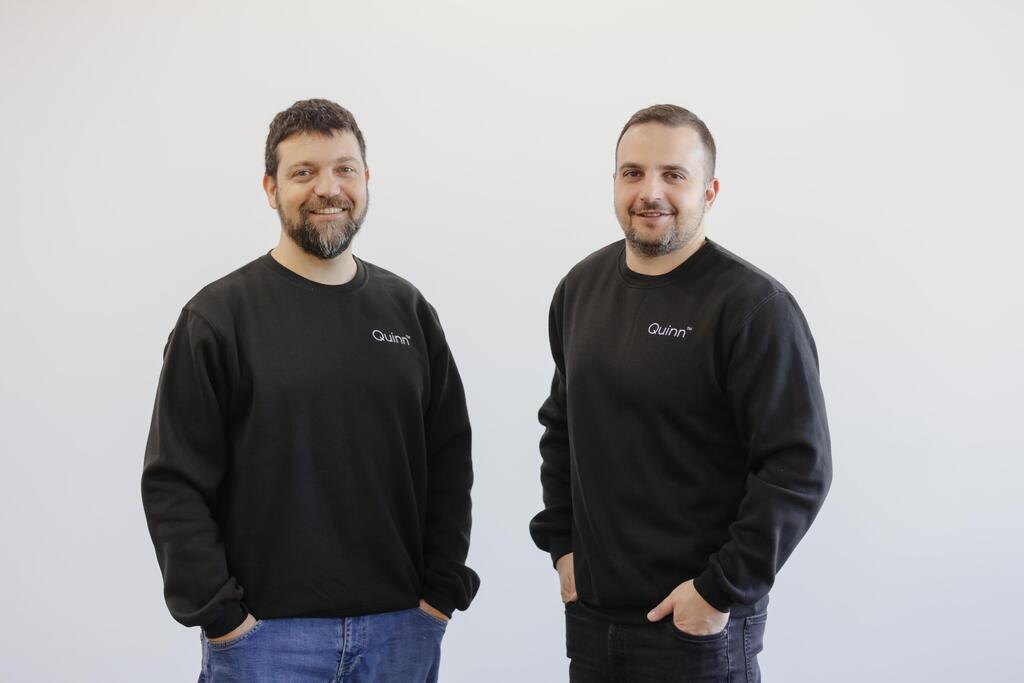Quinn raises $11M Seed round to bring financial planning to the masses
As traditional wealth management struggles to keep pace with digital-first expectations and growing consumer demand, a new player has emerged from stealth promising to upend the advisor-client paradigm. Quinn, an AI-driven financial planning platform, has secured $11 million in Seed funding to help financial institutions deliver personalized, real-time advice to millions of underserved customers.
Led by Viola Fintech, with participation from existing backers, the funding comes amid a widening gap in access to financial guidance. The conventional 1:100 advisor-to-client ratio leaves vast swaths of middle-class and emerging investors without actionable support, a problem Quinn’s founders say can now be solved through machine learning.
1 View gallery


“Financial planning has long been too exclusive, serving the wealthy few,” said Asaf Amir, Quinn’s Co-Founder and CTO. “We built Quinn to change that.”
Yet Quinn’s origin story isn’t just about solving a market inefficiency. It’s also deeply personal, and profoundly Israeli.
“My co-founder Asaf and I started working with a financial advisor around the same time. Over coffee, we realized how fortunate we were – most people never get access to this kind of service,” said Royi Markowitz, Quinn’s CEO. “That conversation sparked a bigger idea: if we could use AI to scale financial advice, we wouldn’t just build a powerful business, we’d impact tens of millions of lives.”
That conviction was cemented by Markowitz’s own experience of financial trauma at home.
“My father passed away young, at 58. His financial stress played a major role, and unfortunately, his story isn’t unique. When Americans are asked about their top concerns, personal finances always top the list,” he said. “I believe financial advice is a basic human need. Advisors are the doctors of the financial world, and just like with healthcare, access shouldn’t depend on your income.”
Quinn’s platform embeds directly into the systems of banks, brokerages, and fintech platforms. Whether white-labeled, co-branded, or integrated via API, the product is already being piloted by several U.S.-based financial institutions. Using military-grade ML adapted for consumer finance, it can generate detailed financial plans in under 30 seconds and onboard clients with advisor-level detail in just 12 minutes, tasks that traditionally took hours or days.
But the most sophisticated technology may be its ability to monitor advice itself.
“Because Israelis naturally think in cyber terms, we built a system that doesn’t just look for security breaches. It flags bad advice, breaks the loop, and routes it for review, as if bad financial advice is a threat vector. Because it is,” said Markowitz. “Our CTO Asaf adapted machine learning systems originally designed to defend a country, and applied them to financial planning.”
The idea, Quinn’s founders emphasize, isn’t to replace certified advisors but to amplify them. By automating core planning tasks, the platform enables CFP professionals to scale their reach while focusing on higher-trust, more complex engagements.
The company, which has 17 employees based in Tel Aviv, London and New York, was founded in Israel during one of the most punishing venture markets in recent memory, punctuated by political upheaval, war, and foreign skepticism.
“We built Quinn during one of the most brutal venture markets in years. Just as we needed capital, Israeli startups became less attractive due to political instability, judicial chaos, and then the war after October 7th,” said Markowitz. “We had U.S. VCs asking us: ‘Why even start a company in Israel anymore?’ Fair question, but we kept building.”
Even as missiles flew during the recent conflict with Iran, Quinn was onboarding major U.S. clients. Recruiting remained a challenge, as early-stage companies found themselves competing for talent with unicorns and multinational firms. And then there was the invisible bias.
“I’ll never forget a call with a U.S. regulator where, the moment he saw my Israeli name and checked me out on LinkedIn, he basically ghosted us. That’s the unspoken tax of being Israeli in some corners of the global market,” said Markowitz.
Still, the company kept moving forward. “The company’s IP is built in Israel, and like every good Israeli startup story, it began with a bit of chutzpah, two guys in Tel Aviv deciding they’re going to reinvent an industry on the other side of the world that manages $140 trillion,” said Markowitz. “Well, it’s happening.”
link
